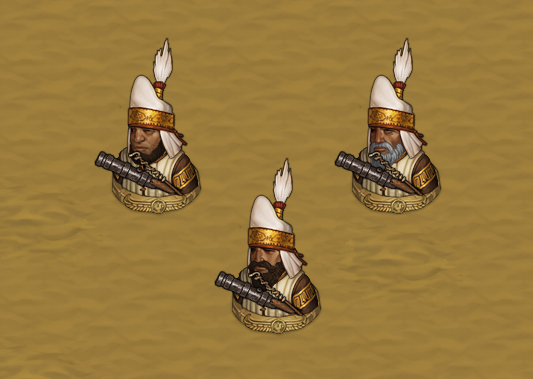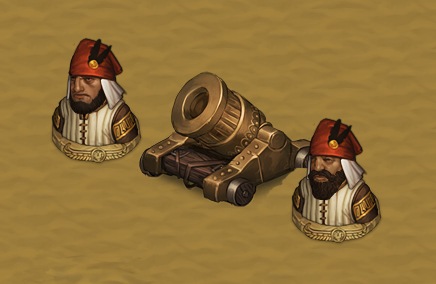-
Welcome to rpgcodex.net, a site dedicated to discussing computer based role-playing games in a free and open fashion. We're less strict than other forums, but please refer to the rules.
"This message is awaiting moderator approval": All new users must pass through our moderation queue before they will be able to post normally. Until your account has "passed" your posts will only be visible to yourself (and moderators) until they are approved. Give us a week to get around to approving / deleting / ignoring your mundane opinion on crap before hassling us about it. Once you have passed the moderation period (think of it as a test), you will be able to post normally, just like all the other retards.
You are using an out of date browser. It may not display this or other websites correctly.
You should upgrade or use an alternative browser.
You should upgrade or use an alternative browser.
Incline Battle Brothers + Beasts & Exploration, Warriors of the North and Blazing Deserts DLC Thread
- Thread starter Antigoon
- Start date
- Joined
- Apr 24, 2015
- Messages
- 21,333




Consensus about what?yeyah wait till the consensus is established
fucking sheeple

- Joined
- Feb 6, 2019
- Messages
- 2,386
what to think about a video gameConsensus about what?
- Joined
- Apr 24, 2015
- Messages
- 21,333




Waste of time, which could be used for more productive purposes?what to think about a video gameConsensus about what?
Darth Canoli
Arcane
One thing i can say for sure, they really came up with a retarded name.
Handgonnes ...
Handgonnes ...
Slave soldiers in history - well trained, well armed often fully professional or elite, with plenty of carrier advancement possibilities
Slave soldiers in BB - expendable rabble barely armed with anything
So tired of this trope
Pls read some actual history books.
Most slave troops were low reputation disposable troops with low morale. Things like Janissaries and Mamluks are an exception, and were not really what you should consider as "slave soldiers".
Fiercely loyal slaves raised from child are the trope, forcibly conscripted peasants who didn't live through their first battle were the reality.
- Joined
- Apr 24, 2015
- Messages
- 21,333




Conscripts are not slaves argument coming in 3..2...
Harthwain
Arcane
- Joined
- Dec 13, 2019
- Messages
- 5,694
They didn't come up with that:One thing i can say for sure, they really came up with a retarded name.
Handgonnes ...
These updates are making my dick BLAZING hot
You mean your handgonne.
*-*/\--/\~
Cipher
- Joined
- Jul 10, 2014
- Messages
- 989
These updates are making my dick BLAZING hot
You mean your handgonne.
Crotch cannon.
Last edited:
Zariusz
Liturgist
Handguns ehh... I was excepting that modders would do this not you devs. Plate armour will be probably next.
Well atleast we will be able to do this
Farawell early/high medieval atmosphere, i will miss you.
Well atleast we will be able to do this
Heroic Liberator
Arcane


- Joined
- Oct 2, 2018
- Messages
- 20,124
As long as it's drifting towards Warhammer Fantasy in terms of pseudohistorical worldbuilding and doesn't abandon its grimdark aesthetic, it's all fine by me.
Emily
Arcane
- Joined
- Mar 21, 2012
- Messages
- 3,068
Handguns ehh... I was excepting that modders would do this not you devs. Plate armour will be probably next.
Farawell early/high medieval atmosphere, i will miss you.
Well atleast we will be able to do this
yeah musket lines with 12 people
Sarissofoi
Arbiter
- Joined
- Mar 24, 2017
- Messages
- 778
Slave soldiers in history - well trained, well armed often fully professional or elite, with plenty of carrier advancement possibilities
Slave soldiers in BB - expendable rabble barely armed with anything
So tired of this trope
Pls read some actual history books.
Most slave troops were low reputation disposable troops with low morale. Things like Janissaries and Mamluks are an exception, and were not really what you should consider as "slave soldiers".
Fiercely loyal slaves raised from child are the trope, forcibly conscripted peasants who didn't live through their first battle were the reality.
Dumb brainlet.
- Joined
- Jan 28, 2011
- Messages
- 100,840
















Last edited:
razvedchiki
Magister
the layered armor system from the legends mod works additive? like when you wear a gabeson with a chainmail your armor rating is calcualted from both the armors?
Heroic Liberator
Arcane


- Joined
- Oct 2, 2018
- Messages
- 20,124
Last week we’ve learned about gunpowder weapons. In this conclusion of our dev blog series exploring the southern city states, we take a look at their remaining troop types that make use of these weapons. Onwards!
Gunners
Armies of the city states train men in the use of the Handgonne, a metal barrel with a long wooden handle that uses gunpowder to propel shrapnel in a wide cone. Below you see Gunners armed with a Handgonne. Its visuals have been revised since last week to make it more readily apparent that this is an unreliable early firearm and not some kind of blunderbuss.

Because their weapons cover a cone, Gunners excel against tightly packed enemy formations. But because their weapons also have a very limited effective range, they often have to position themselves right behind their own frontline, leaving them vulnerable to polearms and firearms themselves. The city states do not make use of traditional ranged weapons like bows and crossbows, but desert raiders - essentially the southern equivalent of brigands - make use of a new composite bow with advantages and disadvantages over northern bows.
Engineers
Malnutritioned slaves toil in the fields and quarries beneath a city of golden domes that reflect the glory of the Gilder. It’s a city of architectural marvels made possible by the application of mathematics and engineering. These sciences are taught in several colleges between the city states, and their graduates make for sought-after engineers. They devise intricate water pumps and fountains that create a private oasis in the gardens of wealthy citizens, and they produce mechanical toys that makes eyes go wide.
But where a child sees but a toy, a man with ambition sees what can become a weapon. And so it is that engineers of the city states also devise terrible weapons of war, and that they operate them on the battlefield to rain down destruction on the enemies of men with ambition.

As you face engineers in battle, they don’t pose much of a threat by themselves. In fact, they try to stay as far away from the frontline as possible. Their role is not to engage the enemy in direct combat, but to operate the technical marvel that is the mortar. A bronze-cast muzzle-loaded piece of artillery, the mortar is able to fire every other round as long as it is operated by at least one engineer next to it.
The mortar has enough range to cover the whole battlefield, but it’s entirely immobile during combat. It fires explosive shells that cover a large area of effect, but it’s highly inaccurate. The howling sound of incoming mortar shells has as much a psychological impact on combatants as it has an explosive impact, or perhaps even more so. Characters in the blast zone lose morale and receive the new ‘Shellshocked’ status effect that lowers their efficiency in combat, but receive only moderate physical damage.
Luckily, because the mortar is heavy, relatively immobile and hard to operate, it’s an uncommon weapon used only with large armies, and one that you’ll most likely face only as part of the new ‘Holy War’ late game crisis.








![Glory to Codexia! [2012] Codex 2012](/forums/smiles/campaign_tags/campaign_slushfund2012.png)



